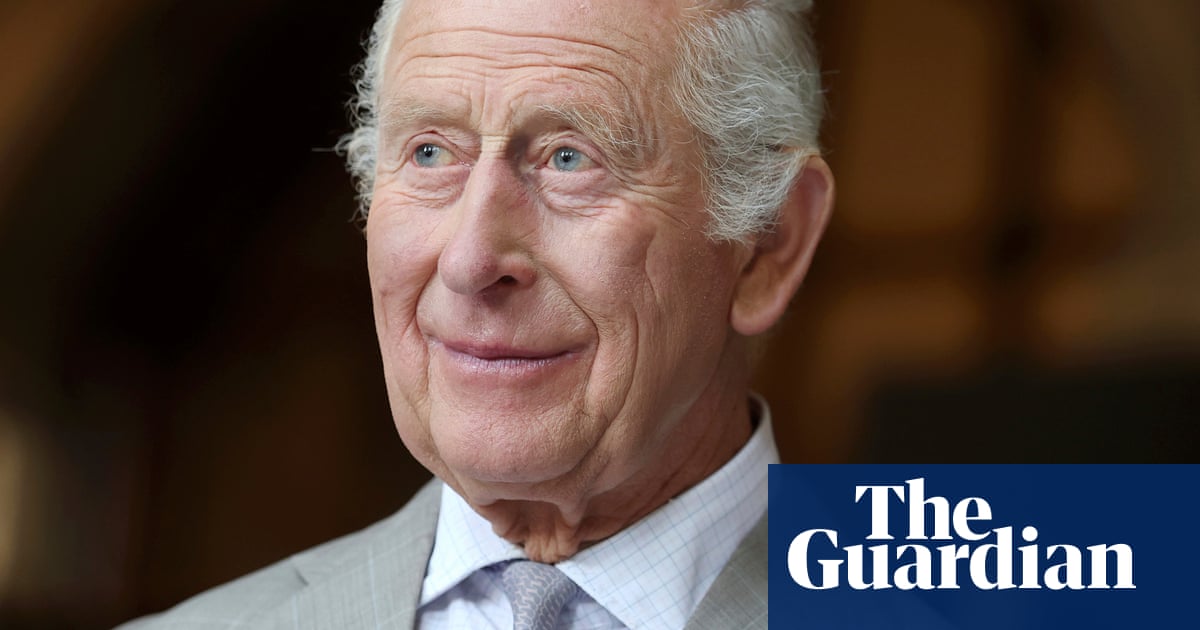King Charles’s personal fortune increased to £640m in the past year, making him as wealthy as the former prime minister Rishi Sunak and his wife,Akshata Murty, according to the Sunday Times rich list.
The 76-year-old monarch, who acceded to the throne in 2022, saw a £30m increase in wealth and ranks joint 238th on the list of the UK’s wealthiest people and families.
The estimate of the king’s wealth is based on personal assets, including the investment portfolio he inherited from his late mother and private estates at Sandringham and Balmoral, anddoes not include the crown estate.
Charles is now estimated to be worth considerably more than the late Queen Elizabeth II, whose wealth was estimated at £370m in 2022.
However, an investigation by the Guardian in 2023 estimated that King Charles’s fortunecould be almost £2bn. That includes cars, rare stamps, property, investments, horses, jewellery, art and a hereditary estate
The wealth of Sunak and his wife has fallen £11m to £640m.
Since leaving Downing Street, Sunak has taken a part-time role at Stanford University and signed up to the Washington Speakers Bureau, and the couple have launched a charity dedicated to improving numeracy.
However, it is Murty who accounts for most of the couple’s wealth. She has a stake in Infosys, the IT company co-founded by her billionaire father.
The list of the UK’s 350 richest individuals and families also reveals the impact of thegovernment’s tax crackdown on non-domiciles.
In April the Labour government abolished the non-dom tax status, which is where UK residents whose permanent home or domicile for tax purposes is outside the UK.
There was the biggest fall in billionaires residing in the UK in the 37-year history of the publication of the annual rich list.
According to the list, there are 156 UK-based billionaires, down from 165 last year, marking the third year in a row the number has fallen.
The biggest drop in wealth was felt by SirJim Ratcliffe, the founder of Ineos and a part-owner of Manchester United, whose fortune fell by about £6bn.
Ratcliffe is ranked as the seventh richest person in the UK, with a wealth of about £17bn.
“Our billionaire count is down and the combined wealth of those who feature in our research is falling,” said Robert Watts, the compiler of the rich list.
“We are also finding fewer of the world’s super-rich are coming to live in the UK.”
Sign up toBusiness Today
Get set for the working day – we'll point you to all the business news and analysis you need every morning
after newsletter promotion
Watts said he was struck by the level of criticism levelled at the government by the wealthy individuals he spoke to compiling the list.
“We expected the abolition of non-dom status would anger affluent people from overseas,” he said. “But homegrown young tech entrepreneurs and those running centuries-old family firms are also warning of serious consequences.”
Gopi Hinduja and his family, who own the Hinduja Group conglomerate, remain Britain’s wealthiest family, with an estimated fortune of £35.3bn.
David and Simon Reuben, the real estate moguls and co-owners of Newcastle United, moved up to second, increasing their wealth to £26.9bn, followed by Sir Len Blavatnik, the owner of Warner Music and the streaming service Dazn, whose fortune dropped by £3.5bn to £25.7bn.
Other high-profile individuals to appear on the list include the singers Elton John and Mick Jagger, the Formula One driver Lewis Hamilton, the film-maker Christopher Nolan, and David and Victoria Beckham.
Overall, the wealth of the 350 individuals and families on the list dropped 3% year on year to £772.8bn. Theturmoil in stock marketscaused by Donald Trump’s tariff war had affected those whose wealth was linked to listed companies, the Sunday Times said.
The High Pay Centre said that the drop in the number of billionaires and the dip in overall wealth do not change the long-term trend of the level of wealth controlled by a small minority.
“The rich list is a useful annual reminder of the inefficiency of the UK economy,” said Luke Hildyard, the executive director of the organisation. “It shows a small fall in the value of oligarch assets this year, but over a longer period it illustrates how a tiny handful of very rich people have captured an increasing share of the country’s wealth.”
